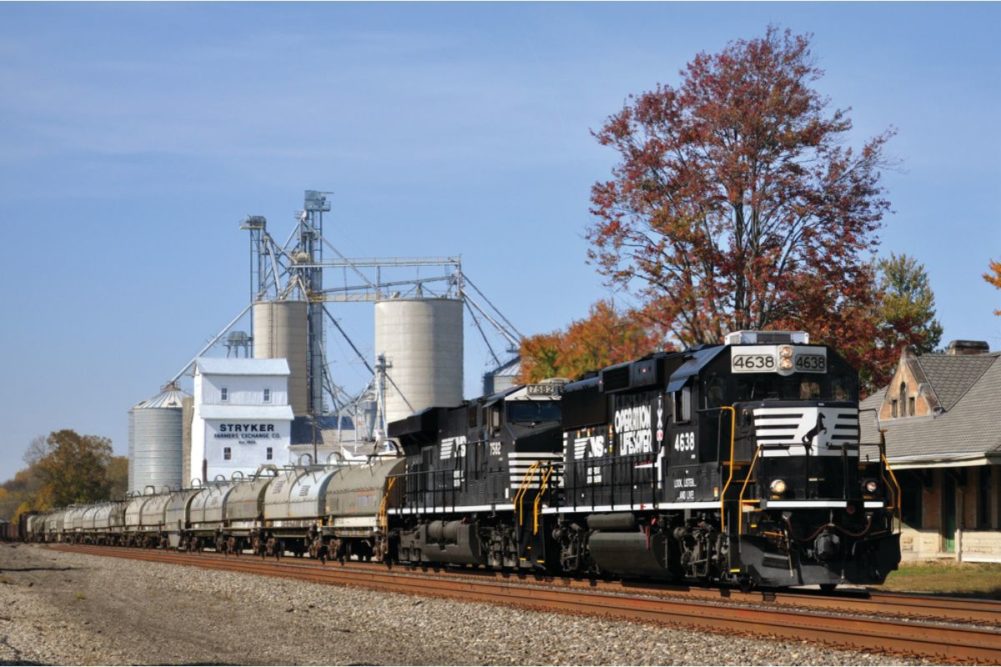WASHINGTON, DC, US — With a shutdown of US railroads looming, several rail carriers said they plan to halt grain shipments before the Sept. 16 deadline for rail carriers and rail labor unions to reach a labor agreement.
Norfolk Southern Corp. said it plans to halt shipment of bulk commodities on Sept. 15 and several other rail carriers plan to follow suit, according to a Bloomberg report.
“We are hearing several rail carriers are tentatively planning to wind down shipments, including agricultural commodities, on Thursday (Sept. 15) to ensure crews aren’t stranded if a strike occurs,” Sarah Gonzalez, director of communications and digital media for the National Grain and Feed Association, told World Grain.
Although 10 of the 12 unions represented in the dispute have reached a tentative labor agreement, the two that are prepared to strike represent train operators.
The NGFA has urged leaders of railroads and rail labor unions to remain at the negotiating table and commit to reaching an agreement by Sept. 16.
“A rail stoppage on Sept. 16 would hit right as the fall harvest accelerates in many parts of the United States,” Mike Seyfert, president and chief executive officer of the NGFA, wrote in a Sept. 12 letter. “The economic damages across the food and agricultural supply chain would be swift and severe.”
Gonzalez said if the parties fail to reach an agreement by the 12:01 a.m. deadline on Sept. 16, the NGFA has asked Congress “to stay in session and prepare to intervene without delay to prevent a rail stoppage of any duration.”
It has been 30 years since US rail workers went on strike. In 1992, Congress passed legislation that ended a two-day rail shutdown.
If the two sides can’t agree on a deal by the end of the week, the economic consequences could be dire.
The Association of American Railroads (AAR) put out a report last week estimating that the US economy would take a $2 billion a day hit if the trains stop moving. The AAR also noted that railroads transport 1.5 million carloads of grain each year.
Gonzalez said rail moves about 25% of all US grain.
Class I railroads announced late last week that they would begin curtailing shipments of hazardous materials on Sept. 12 in anticipation of a possible strike.
That would include fertilizer products, such as ammonia — a key fertilizer and building block for approximately three-fourths of all fertilizer.
“Supply chains are already strained and there is currently zero elasticity in rail transportation,” said Corey Rosenbusch, president and CEO of TFI. “This situation will get exponentially worse every day there is no resolution. Over half of all fertilizer moves by rail year-round, and there are some fertilizer products that move almost exclusively by rail. If they can’t be shipped, farmers won’t have them and if they can’t move, production slows down. In the end, the consumer will be footing the bill for this inaction at a time when household budgets are already strained.”
While Congress could be called upon to settle differences in the event of an impasse in negotiations, the NGFA urged the parties to avoid that outcome.
“Economic challenges to livestock and poultry producers this year due to rail service delays are well-documented, and a shutdown would quickly cause additional problems and force producers to make difficult decisions regarding the viability of their animals,” Seyfert said, adding that grain processing and biofuels plants may have to scale back production and exporters may not be able to find viable transportation alternatives.




